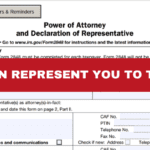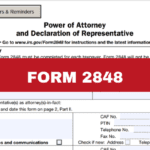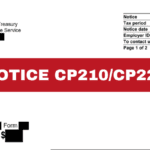Without question, one thing every American dreads is confronting the IRS. The best way to deal with the IRS, though, is by not incurring their disfavor–in other words, pay your taxes. Unfortunately, this does not guarantee that you will never have to confront the IRS.
Is It Only Troublemakers That Run Afoul of the IRS?
Of course, people who deliberately fail to pay their taxes have sealed their fate. Many Americans, however, run into trouble for more “innocent” reasons. Sometimes the government makes mistakes and irresponsibly harasses victims thereof. It can also be a matter of a taxpayer mistakenly failing to file returns or applying for exemptions the IRS ultimately questions. It can also be a financial disaster affecting a taxpayer’s ability to meet his/her responsibilities.
Whatever the reason, once a taxpayer runs into trouble with the IRS, the matter becomes serious. If the IRS determines that you owe them money, they can then issue a “lien,” or “intent” to seize property you own. The good news about liens is that they are not actual seizure but the beginning of a procedure to seize your property in order to pay for past-due taxes
A more serious approach the IRS can take is the “levy,” an actual seizure of property. “Property” may include real estate, bank accounts, wages, etc. In other words, most types of property.
Do Taxpayers Have Recourse against Liens and Levies?
In fact, taxpayers have much recourse against IRS liens and levies. Above all, though, you must act fast, address notices, and, if at all possible, hire an experienced IRS-tax-law attorney to represent you, especially if you are being victimized.
What Are some of the Things You Can Use to Defend Yourself?
Unfortunately, tax laws and IRS regulations are very complex, which is why you need to hire an attorney to represent you. The IRS is compelled to deal with your attorney; additionally, being represented reduces chances of saying wrong things (which can be held against you) or forgetting to exercise a right you may be unaware of. Here are just a few of the “rights” an attorney may use to help fight your case:
- Did the IRS follow proper procedures? The IRS, for example, must notify you in writing and must give you a chance to address their findings before filing a lien or levy.
- You have the right to appeal their findings.
- You can stop a lien or levy—i.e., because of economic hardship, by arranging for a payment plan, etc.
- Appealed cases usually fare better than un-appealed ones.
- There is much legal precedence on behalf of taxpayers wrongly/illegally assessed by the IRS.
- Several not-well-known laws/statutes protect taxpayers—e.g., Social Security benefits being excluded; having 9 months to file suit in federal court against levies; continuing wage levies may not exceed 15% of salary; etc.
Unless you are well-versed in tax law, you need legal representation when taking on the IRS. Only then can you protect your reputation, your property, and your good credit.






 Steven N. Klitzner, P.A. is a tax attorney based in Miami, Florida. He has been practicing tax law for over 40 years, and currently holds a 10.0 rating by Avvo. Mr. Klitzner was appointed to the IRS Service Advisory Council in 2021 and is...
Steven N. Klitzner, P.A. is a tax attorney based in Miami, Florida. He has been practicing tax law for over 40 years, and currently holds a 10.0 rating by Avvo. Mr. Klitzner was appointed to the IRS Service Advisory Council in 2021 and is... 





